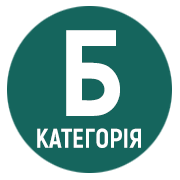SOVIET «JUSTICE» THROUGH THE PRISM OF THE IDEOLOGY OF IVAN BAGRYANY (BASED ON THE NOVEL «THE GARDEN OF GETHSEMANE»)
DOI:
https://doi.org/10.31494/2412-933X-2019-1-8-90-101Keywords:
character, ideology, Ivan Bagryany, myth, «The Garden of Gethsemane».Abstract
The given article attempts to analyze the Soviet ideology influencing ways on characters, which represent human rights authority in the novel «The Garden of Gethsemane» by Ivan Bagryany. The purpose of the article is to characterize the images of jailers in the text, to examine what determines their behavior. At the beginning of the paper, the nature of the ideologies that are totally different in its nature and stands opposite to each other in the novel – the Soviet official propaganda and the author's anti-Soviet humanistic concept, is outlined. Formal representatives of the Soviet ideology in the work are justice agents. The author`s ideological concept is revealed by the means of their image manifestation. The theoretical basis of the article is R. Bart`s myths works on stereotyped images, which are perceived as genuine ones. The article attempts to analyze the nature of the myths and ideologemes which are a basis of jailers` mindset and their attitude to prisoners. The paper analyzes the internal motivation of jailers` activity, among which we distinguish Soviet myths, which are ingrained in humans consciousness and apperceived or not apperceived self-profit. Ivan Bagryany`s powerful humanistic concept is displayed in the ability to have a fine appreciation of human nature, even of the cruel estexecutioner. In the novel alongside the jailers` disdainful psychologic alimage, the motive of compassion for the executioners as victims of propaganda and their own selfish unconscious intentions is depicted. The author demonstrates how ideology determines the mindset of jailers, but at the same time has a powerful destructive effect on them. According to the writer, violence contradicts the man nature, and therefore, executioners, in spite of over-engagement and cynicism, could not help but feel internal dissonance. It is concluded that the writer criticizes the Soviet system and ideology, showing its ability of moral and physical destroying not only its opponents but also allegiances.
References
Адлер А. Наука жить. Киев:Port-Royal,1997. С. 235–241. URL: http://flogiston.ru/library/adler_vlast (дата звернення: 15.03.19).
Арон Р. Демократия и тоталитаризм М.: Текст, 1993. 303 с. URL: https://www.twirpx.com/file/140410/ (дата звернення: 05.03.19).
Багряний І. Сад Гетсиманський. Харків: Фоліо, 2013. 572 с.
Барт Р. Избранные работы: Семиотика: Поэтика: Пер. с фр. / Сост., общ. ред. и вступ. ст. Г. К. Косикова. М.: Прогресс, 1989. 616 с.
Ваховська Н. Ідеологія у творі. Ідеологія твору: точки перетину і трансформації. URL: http://archive.prostory.net.ua/ru/articles/135-2008-10-28-15-47-23 (дата звернення 20.02.19).
Єрмоленко В. Плинні ідеології. Ідея та політика в Європі ХІХ-ХХ століть. К.: ДУХ І ЛІТЕРА, 2018. 480 с.
Ільницький М. Українська літературознавча думка ХХ століття (Західна Україна, еміграція) : навч. посібник . Львів : ЛНУ імені Івана Франка, 2015. 352 с. 8. Карпова В. Іван Багряний : «Сад Гетсиманський», роман. Літ.-наук. зб. 1962. № 1. С. 280-282.
Рамазанов Э.Н Психологические основания власти. Bulletin of Medical Internet Conferences 2017. Volume 7. Issue 6 URL: https://medconfer.com/node/14649 (дата звернення: 15.03.19)
Романова І. В. Мотив «закинутості» особистості в дисгармонійне середовище (на матеріалі романів І. Багряного «Людина біжить над прірвою» та «Сад Гетсиманський»). Наук. записки Харк. нац. пед. ун-ту ім. Г. С. Сковороди. Сер. : Літературознавство. 2013. Вип. 3(2). С. 120127.
Сподарець М. П. Я визначив собі шлях – шлях українського письменника (Перипетії творчості і біографії І. Багряного. Вісн. Харк. нац ун-ту ім. В. Н. Каразіна Сер. : Філологія. 1999. Вип.50. № 448. С. 3-12.
Степанівський С. «Сад Гетсиманський» у світлі сучасних ідеологічних суперечностей. Іван Багряний : нове й маловідоме. Есеї. документи, листи, спогади, нотатки, факти / літ. ред. Н. Шугай. Київ : Смолоскип, 2013. Кн. 1. С. 482486.
Череватенко Л. Ходи тільки по лінії найбільшого опору і ти пізнаєш світ. Дніпро. 1990. №12. С. 6176.






